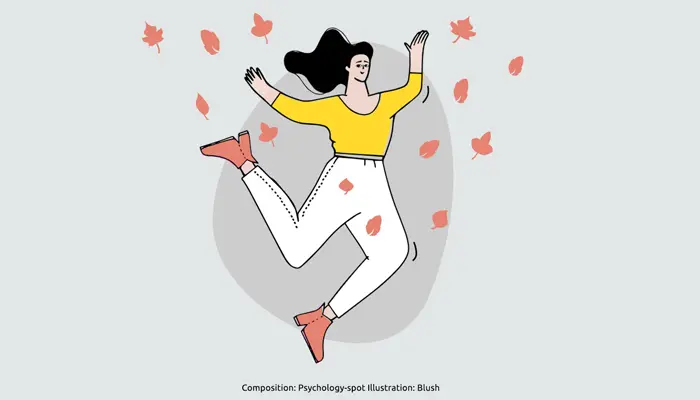
When it comes about how to be happy, most people ask themselves: “What should I do?” It is not strange, imbued as we are in the culture of doing and full occupation of time until there is not a single minute left. The great philosophers, however, asked themselves: “What kind of person should I be?”
The secret is balance
Many great thinkers used to resort to the ethics of virtue in search of answers. Aristotle, one of the most influential philosophers of all time, developed an integral system on virtue that we can perfectly put into practice in modern times to reach a state of emotional balance and inner peace in which happiness flourishes naturally.
In fact, his system of virtue ethics is specially designed to help us achieve “eudaimonia”, a very interesting word that comes from the Greek eu-good and daimon-good spirit usually translated as “happiness” or “wellbeing” but actually means be positive having a solid meaning in life.
That means that Artistotle thought that happiness is a result of a way of living and a way of being, which comes when we are able to develop our potential as a person and build a solid “ego”. What is that way of living?
Aristotle thought that the secret was the balance, an idea that is related to other philosophical systems such as Buddhism. This philosopher thought that a life of abstinence, deprivation and repression does not lead to happiness or a full “ego”. But a hedonistic life is not the way either, since excesses usually generate a form of slavery towards pleasure, generating existential void.
“Virtue is an intermediate position between two vices, the one by excess and the other by default,” he wrote. And to develop virtue, we should simply take advantage of all the opportunities that arise since it is not about theoretical concepts but about attitudes, decisions and behaviors that should be guided our lives.
The 10 Aristotelian virtues to achieve happiness or eudaimonia
In the Nicomachean Ethics, Aristotle’s best-known book written in the fourth century BC., he lists the virtues that we should develop to achieve happiness or eudaimonia:
- Mildness. It is the ability to control our temper and first reactions. The patient person does not get too angry, but neither does he stop getting angry when he has reasons for it.
- Strength. It is the midpoint between cowardice and imprudence. The strong person is one who faces danger by being aware of the risks and taking the necessary precautions. It is about not taking unnecessary risks but also not avoiding the risks necessary to grow.
- Tolerance. It is the balance between overindulgence and intransigence. Aristotle thought that it is important to forgive, but without falling into the extreme of tolerating everything by letting others trample on our rights or deliberately hurt us without responding. So negative is to be extremely tolerant as extremely intolerant.
- Generosity. It is the middle point between pettiness and prodigality, it is about helping others but not surrendering so much that our “ego” is diluted.
- Modesty. It is the virtue that is at the midpoint between not giving oneself enough credit for the achievements made due to low self-esteem and having an excessive ego that makes us think that we are the center of the universe. It is about recognizing our mistakes and virtues, assuming the responsibilities that correspond to us, neither more nor less.
- Truthfulness. It is the virtue of honesty, which Aristotle places at a fair point midway between the usual lie and the lack of tact telling the truth, so that the person becomes a kamikaze of the truth. It is about evaluating the reach of our words and saying what is necessary, neither more nor less.
- Grace. It is the middle point between being a buffoon and being so unfriendly resembling rude. It is just being, so that the others enjoy our company.
- Sociability. Long before neuroscientists discovered that we have to choose our friends carefully because our brains will end up resembling their own, Aristotle already warned us of the danger of being too sociable with too many people, as well as of the inability to make friends. The philosopher believed that we should choose our friends with care but we should also cultivate those relationships.
- Decency. It is the midpoint between being too shy and being shameless. A decent person respects himself and is not afraid to make mistakes, but does not fall into insolence or impertinence trying to pass over the others. He is aware that everyone deserves to be treated with respect, and demands that same respect for himself.
- Fairness. It is the virtue of dealing fairly with the others, halfway between selfishness and total disinterest. It consists of taking into account both the needs of the others and our own, to find the middle ground that allows us to make fairer decisions for all.
The most interesting thing about Aristotle’s proposal is that there is room for error, to make mistakes, learn and improve without feeling that we are bad people or we will not succeed. What you think?



